Donna Summer

Singer • Songwriter
Birth Name: LaDonna Adrian Gaines
Birth Date: December 31, 1948
Death Date: May 17, 2012 — 63 years old
Birth Place: Boston, Massachusetts
According to Billboard magazine, singer Donna Summer was the eighth most successful female recording artist in history, a fact borne out by her incredible run of hits between 1976 and 1984, which included four consecutive No. 1 singles with "MacArthur Park," "Bad Girls," "Hot Stuff" and "No More Tears (Enough is Enough)" with Barbra Streisand. After an unremarkable beginning as a recording artist in Germany, Summer broke into the U.S. market with the eyebrow-raising "Love to Love You Baby," a 17-plus-minute opus of unbridled sexuality built around Summer's ecstatic moans. Producers Giorgio Moroder and Pete Bellotte, who oversaw the track, shepherded much of Summer's subsequent efforts, which moved effortlessly from gospel-inspired R&B to pure disco on the Oscar-winning "Last Dance" to proto-electronica on the influential "I Feel Love."
Personal problems and a sea change in the music industry capsized Summer's career for much of the 1980s, but she reemerged in the late 1990s with a string of top dance singles, which reaffirmed her status as one of the reigning queens of that genre. Her revival in the new millennium made Summer one of the few stars of the disco era to enjoy chart success in later years, and cemented her status as one of the leading lights of late 20th century popular music.
Born LaDonna Adrian Gaines on New Year's Eve in Dorchester, a working-class suburb of Boston, she was one of seven children by devoutly Christian parents. Her church choir naturally became the first showcase for her singing talent, but as a teen, she formed several girl groups that emulated the harmonies of The Supremes. As the '60s drew to a close, Summer found inspiration in the bluesy wail of Janis Joplin, and soon joined a local psychedelic rock band called The Crow. Her musical interests placed her at odds with her family, who were critical of her earthy voice and looks.
When The Crow fell apart, Summer dropped out of high school to try her hand at the music scene in New York. There, she lost a role in the Broadway production of "Hair," but was subsequently cast in a German version. She would remain in Vienna for several years, appearing in productions of "Godspell," "Show Boat," and with the pop group Family Tree. In 1971, she released her first single, a cover of the Jaynetts' "Sally Go 'Round the Roses," which failed to make an impact. The following year, she married Austrian actor Helmuth Sommer, taking an Anglicized version of her new surname. The couple had a daughter, Mimi, shortly before their divorce in 1974.
That same year, Summer became acquainted with producers Giorgio Moroder and Pete Bellotte, with whom she recorded the 1974 single "The Hostage." A No. 1 hit in Belgium, it was also featured on her debut album, Lady of the Night (1974). The following year, the trio collaborated on "Love to Love You Baby" (1975), a trance-like, highly eroticized dance track built around Summer repeatedly moaning the title between orgasmic groans. It was a hit across Europe, most notably in the U.K., where it reached No. 5 on the singles charts.
The extended version also took up an entire side on Summer's debut LP for Casablanca, also called Love to Love You Baby, which sold over a million copies. Moroder and Bellotte would craft Summer's next two albums after the model of her freshman effort, with a single side devoted to an epic ballad, followed by a second side of mostly forgettable soul tracks. Both 1976's A Love Trilogy and Four Seasons of Love were certified gold, but felt like carbon copies of her debut. But her fourth album, 1977's I Remember Yesterday broke ranks with not only its predecessors but with the established sound of disco music with the single "I Feel Love."
Driven entirely by a synthesized track instead of traditional pop instruments, the song shot to No. 6 on the Billboard charts, granting Summer a second Top 10 single. More importantly, it served as the blueprint for the next two decades of dance music, most notably the techno movement, which took cues from its pulsating, Moebius loop production. Flush with the success of "I Feel Love," Summer next released Once Upon a Time (1977), an ambitious double-LP concept album about a young woman's dreams of love.
The record presented both facets of Summer's sound, with one entire album side devoted to the electronic sound of "I Feel Love." A fan favorite for decades, it reached the Top 30 on the albums chart, but was soon overshadowed by her 1978 release, Live and More, another double LP featuring three sides of Summer performing in concert, with a fourth side devoted to a medley called "MacArthur Park Suite." The latter track featured four songs, including the epic Jimmy Webb ballad made popular by actor Richard Harris, as well as "Heaven Knows," a propulsive dance track featuring the group Brooklyn Dreams. Both songs were released as individual singles, which scaled the heights of the Billboard charts. "MacArthur Park" became Summer's first No. 1 single, while "Heaven Knows" broke into the Top 5. Live and More also became Summer's first No. 1 album on the Billboard 200.
Live and More also featured a new song called "Last Dance," which appeared on the soundtrack for a wan disco-themed comedy called Thank God It's Friday (1978) which also marked Summer's screen acting debut. The track won Summer her first Grammy for Best R&B Performance, as well as an Oscar for Best Original Song. The unprecedented success of the song and its accompanying album foreshadowed an incredible run on the American charts in 1979 - the year that saw her unofficially named the "Queen of Disco."
That year, she released Bad Girls, her second double-LP album, which followed Live and More to the top of the album charts. Its two singles, the brassy "Bad Girls" and a rock-oriented track called "Hot Stuff" also reached No. 1 on the singles chart, with "Hot Stuff" netting Summer a second Grammy. That same year, she recorded a fiery duet with Barbra Streisand called "No More Tears (Enough is Enough)," which became her third No. 1 single. Having two vocal powerhouses dueting on one single brought about the legendary story of the two divas trying so hard to out-sing the other that Summer reportedly fell off her stool while hitting a high note.
The track was prominently featured on her third double-LP release, On the Radio: Greatest Hits Volumes 1 & 2 (1979), which made her the first artist to hit No. 1 on the album charts with three consecutive double LPs. The album's title also gave Summer her eighth Top 5 song in two years, four of which were No. 1 singles. However, Summer's extraordinary popularity did little to alleviate a host of personal problems that had arisen concurrent with her success.
She suffered from depression and anxiety attacks generated largely by the enormous pressures of her newfound fame, as well as regrets over some missteps in her personal life. After her divorce from Helmuth Sommer, she had become involved with surrealist painter Peter Mühldorfer, who had become jealous of her success and reportedly also became abusive. After Mühldorfer was sent back to Germany following the revocation of his visa, she found some joy in a new marriage to Brooklyn Dreams member Bruce Sudano, but a mounting addiction to prescription pills for her anxiety issues led to suicide attempts and a nervous breakdown in 1979. Following these incidents, Summer decided to become a born-again Christian.
Summer's decision spurred her to make sweeping changes to her career. She left Casablanca Records for David Geffen's new, eponymous imprint, where she released 1980's The Wanderer. The record reflected her desire to trade her past as a disco queen for a rock/R&B sound that hewed closer to the growing New Wave movement. Summer further distanced herself from her past by announcing that she would no longer perform "Love to Love You Baby" due to its adult tone, which conflicted with her Christian beliefs. The Wanderer represented something of a step backwards for Summer, reaching only gold status, prompting the singer to return to her dance roots with I'm a Rainbow, her proposed sophomore effort for Geffen.
However, the label shelved the record, citing their displeasure with the end result; Geffen further requested that Summer part company with Moroder in favor of a more updated sound. She teamed with Quincy Jones for her 1982 self-titled record, which generated a Top 10 hit with "Love Is In Control (Finger on the Trigger)," but none of its subsequent singles broke into the Top 30. Conflict between Summer and Geffen escalated anew after the label refused to release her next record, a collaboration with dance producer Michael Omartian. Soon thereafter, Polygram Records, which owned her former label, Casablanca, initiated litigation against the singer for not completing her contract with them.
Summer delivered her record with Omartian to Polygram, which released it as She Works Hard for the Money on their Mercury imprint in 1983. The album's title track, which reflected Summer's interest in urban R&B, was a Top 5 smash, and its follow-up, "Unconditional Love," which featured the hit U.K. reggae group Big Youth, reached the Top 20. Though the record had returned Summer to the top of the charts, it also marked the end of her reign as a popular recording artist.
Her follow-up for Geffen, Cats Without Claws (1984) yielded a Best Inspiration Performance Grammy for the song "Forgive Me," but the record failed to achieve gold sales status, a fate which also befell her next record, All Systems Go (1987). She also lost a core demographic of her fan base after rumors surfaced that she had made anti-gay statements in 1983. Summer failed to address the allegations, which she stated were false, until 1989, but by then, the damage to her career was done.
She briefly resurfaced that year with the single "This Time I Know It's For Real," produced by the U.K. team of Stock Aitken Waterman, which had gained huge chart hits for Rick Astley and Kylie Minogue, among others. The song reached No. 7 on the U.S. charts, but Geffen refused to release the accompanying album, Another Place and Time (1989). Atlantic Records quickly picked her up, but none of her subsequent efforts produced any notable hits. By the mid-1990s, she had reunited with Moroder for several dance singles, including "Carry On" and "Melody of Love (Wanna Be Loved)," which reached the top of the U.S. Dance charts.
"Carry On" would later bring Summer the first ever Grammy for Best Dance Recording thanks to a 1997 remix. Its success marked the beginning of a career upswing for Summer. In 1998, she taped "Live and More Encore," a live concert special that earned the second highest ratings of the year for its broadcast network, VH1. Epic Records released a soundtrack CD for the show, which included two studio recordings, including "Love is the Healer," which became her second No. 1 on the Dance charts. Ten years later, Crayons, Summer's first full-length studio album in 17 years, landed at No. 17 on the Billboard 200, with three singles, including "Stamp Your Feet," which reached the top of the Dance chart.
Another No.1 came in 2010 with "To Paris with Love." During this period, Summer was a popular guest vocalist on a variety of music specials, including "American Idol" (Fox, 2002-16), where she performed many of her '70s disco classics, including, to the surprise of many, "Love to Love You Baby." Sadly, Summer passed away at age 63 from cancer on May 17, 2012, shocking fans who had no idea she was ill. She had secretly battled the disease and reportedly been recording a new album at the time of her death.
By Paul Gaita
Credits

Pride Classics

Sounds of Pride '20

Kygo & Donna Summer: Hot Stuff

Ladies of RnR

Melody Club 80

Play Hits - Donna Summer Video Collection

Donna Summer

Hit Melody Vintage

Variétés

Night of the Proms

Donna Summer - Hot Stuff

Disco at the BBC

Obama Nobel Peace Prize Concert

Nobel Peace Prize Concert

Donna Summer: Mr. Music

Donna Summer: Stamp Your Feet

Donna Summer: The Queen Is Back

America's Got TalentStream

One Night With Barry Manilow

Tavis Smiley

Rock to Erase MS

Donna Summer: I Will Go With You (Con Te Partiró)

Donna Summer: I Feel Love (Live)

A '70s Celebration: The Beat Is Back
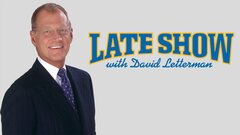
Late Show With David Letterman
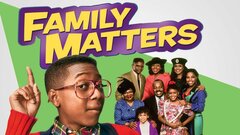
Family MattersStream

Donna Summer: This Time I Know It's For Real

LørDan

Donald Duck's 50th Birthday

Entertainment Tonight
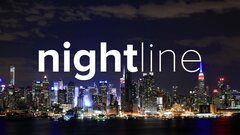
Nightline
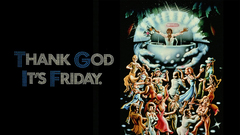
Thank God It's FridayStream
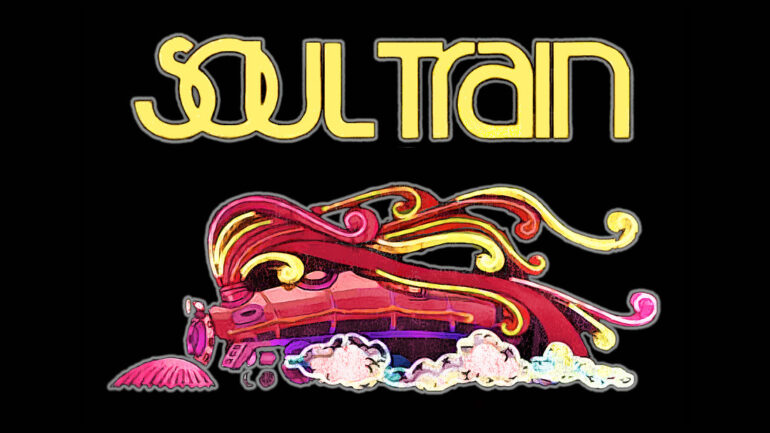
Soul Train
















